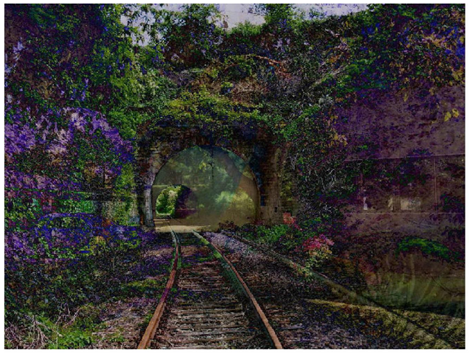No Copyright Protection for Works Created Solely by AI, DC Federal District Court Holds
On August 18, 2023, the US District Court for the District of Columbia held that the US Copyright Office did not abuse its discretion in determining that works generated entirely by artificial intelligence (AI) systems are ineligible for US copyright protection.
The court’s opinion affirms the Copyright Office’s longstanding position that under the US Copyright Law, human authorship is a requirement for material to be eligible for copyright protection. This decision comes after the guidance published by the Copyright Office in March 2023 regarding the preparation of applications for copyright registration for works that contain material generated using AI technology.
The court’s decision followed the Copyright Office’s repeated refusal to register a work of visual art created by computer programs developed by plaintiff Stephen Thaler. Thaler, a computer scientist, claimed to have developed and owned a computer system that uses AI to generate visual art. On his application for copyright registration, Thaler identified the computer system, called the “Creativity Machine,” as the author of a work of visual art entitled “A Recent Entrance to Paradise” (depicted below).

Thaler sought registration of the work with the Copyright Office, naming himself as the copyright owner (asserting the Work-for-Hire doctrine) and explaining that the work had been created autonomously “by a computer algorithm running on a machine.” He claimed copyright ownership vested in him as the owner of the machine. The Copyright Office disagreed with Thaler’s claim, as did the Copyright Review Board, with both refusing to extend copyright protection to a work that was not created by a human. In turn, Thaler sued the Copyright Office and the Register of Copyrights in the US District Court for the District of Columbia. On the parties’ cross-motions for summary judgment, Judge Beryl A. Howell ruled in favor of the Copyright Office and the Register of Copyrights, reiterating the well-established principle that an “author” of a work must be a human in order to receive protections afforded by US Copyright Law.
The case is among a growing number of lawsuits surrounding copyright law and AI technology. While the court’s opinion clarifies that works generated autonomously by computer systems are ineligible for copyright protection, the decision does not address the significant question on many people’s minds — what level of human creative control is needed when using generative AI for material to qualify for copyright protection?
In referencing Congress’ October 2022 letter to the US Patent and Trademark Office (USPTO) and US Copyright Office’s National Commission on AI, the court acknowledged that we are approaching “new frontiers” as AI increasingly is used to create new visual and other artistic works. Such use also prompts questions concerning the amount of human input needed to qualify an AI user as an “author,” the copyright protection afforded to works resulting from AI, and how to assess originality in the wake of AI systems being trained on pre-existing materials.
Ultimately, only time — and additional cases — may result in answers to each of these questions.
For our prior coverage of Copyright Office determinations regarding AI and applications for copyright registration, please refer to our previous articles here and here.
For information on the impact of AI on many industries, visit the ArentFox Schiff Industry Guide to Artificial Intelligence. Read a copy of the Federal District Court of the District of Columbia’s opinion here.
Contacts
- Related Industries
- Related Practices

